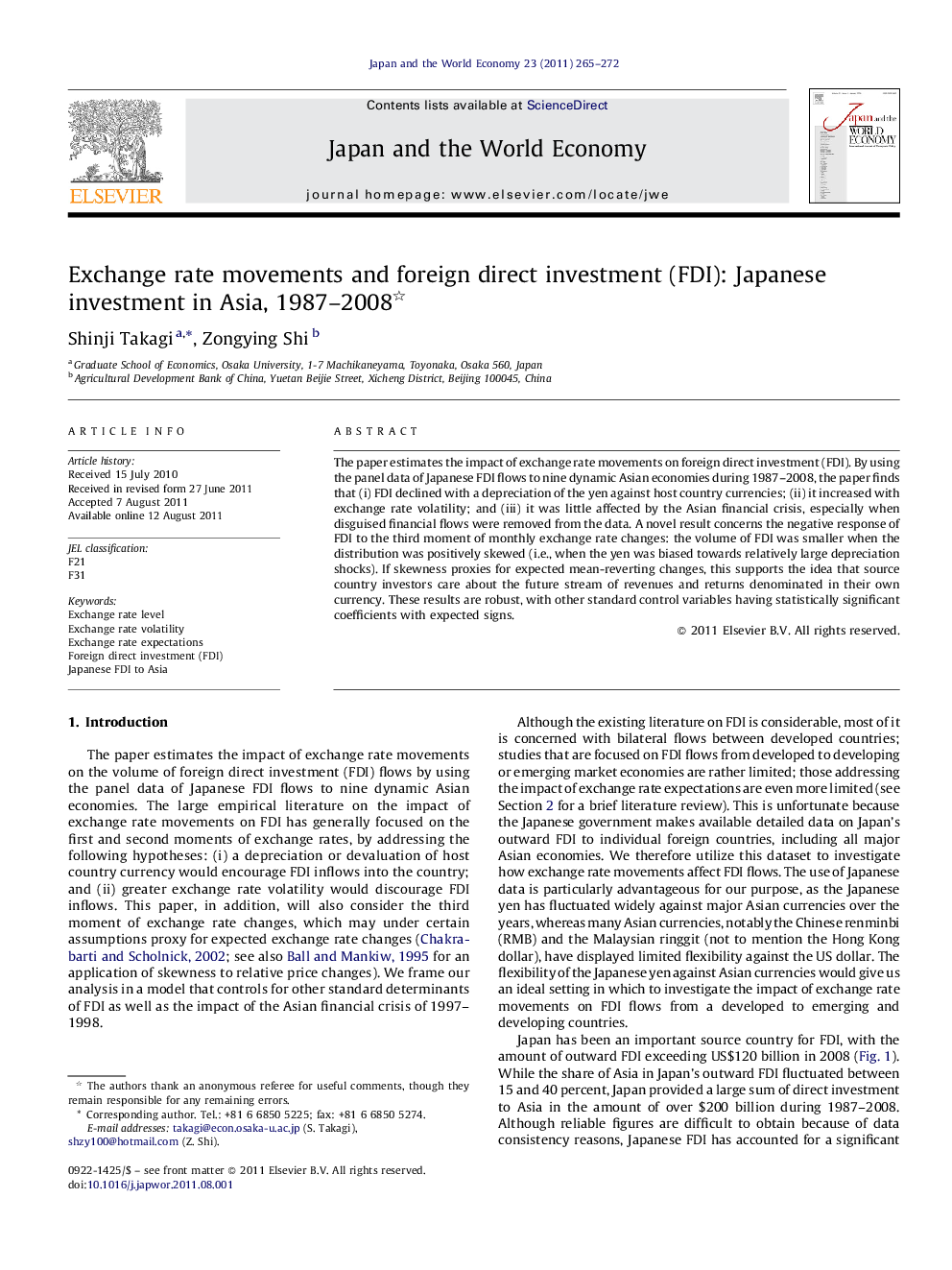| Article ID | Journal | Published Year | Pages | File Type |
|---|---|---|---|---|
| 5086205 | Japan and the World Economy | 2011 | 8 Pages |
The paper estimates the impact of exchange rate movements on foreign direct investment (FDI). By using the panel data of Japanese FDI flows to nine dynamic Asian economies during 1987-2008, the paper finds that (i) FDI declined with a depreciation of the yen against host country currencies; (ii) it increased with exchange rate volatility; and (iii) it was little affected by the Asian financial crisis, especially when disguised financial flows were removed from the data. A novel result concerns the negative response of FDI to the third moment of monthly exchange rate changes: the volume of FDI was smaller when the distribution was positively skewed (i.e., when the yen was biased towards relatively large depreciation shocks). If skewness proxies for expected mean-reverting changes, this supports the idea that source country investors care about the future stream of revenues and returns denominated in their own currency. These results are robust, with other standard control variables having statistically significant coefficients with expected signs.
⺠We estimate the impact of exchange rate movements on Japan's outward foreign direct investment (FDI) in nine Asian economies during 1987-2008. ⺠A higher yen and greater exchange rate volatility promoted FDI, but it was little affected by the Asian financial crisis. ⺠A novel finding is that FDI declined when the distribution of exchange rate changes was positively skewed. To the extent that skewness proxies for expected mean-reverting changes, FDI was motivated by the future stream of returns denominated in the source country currency.
